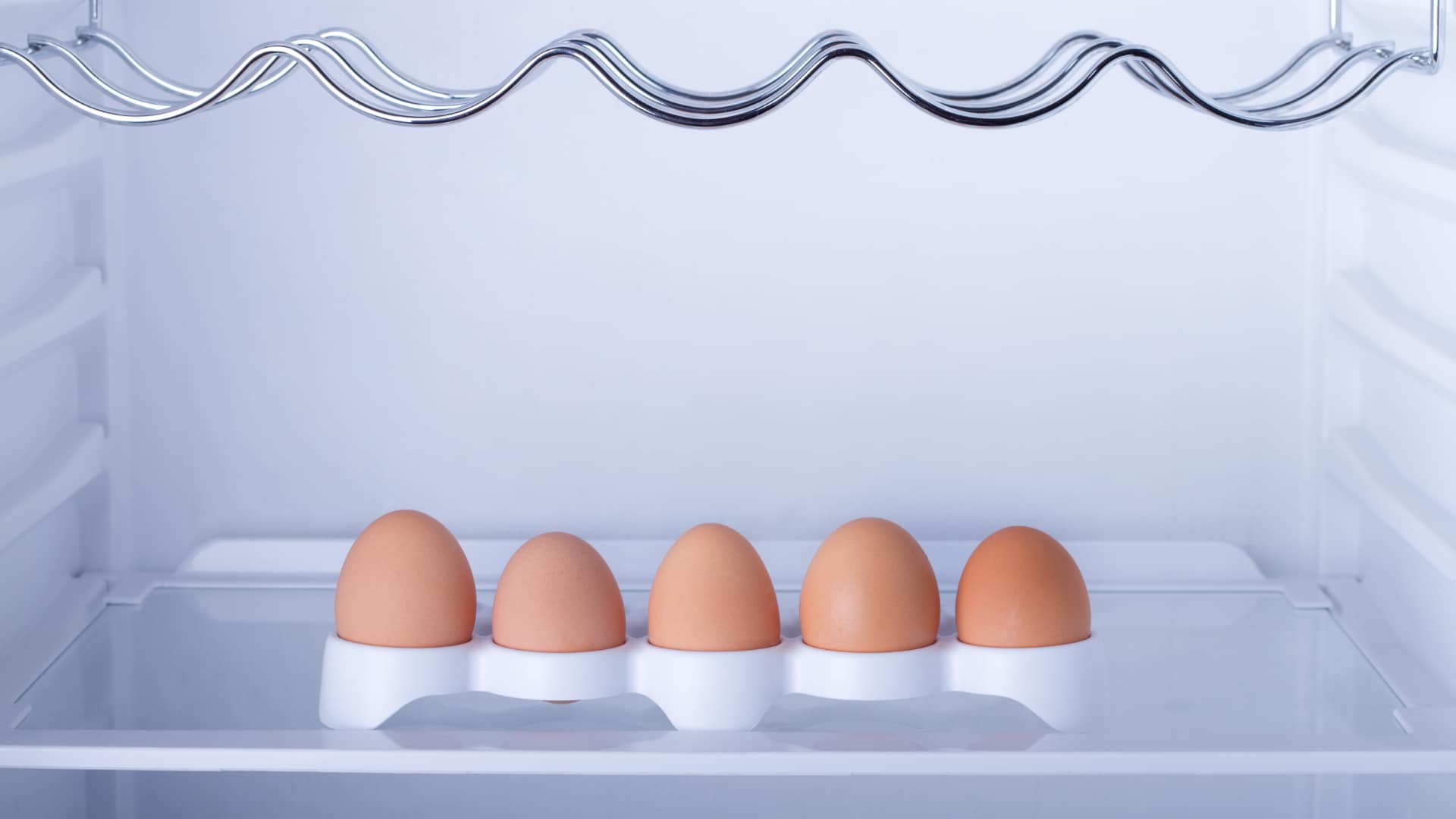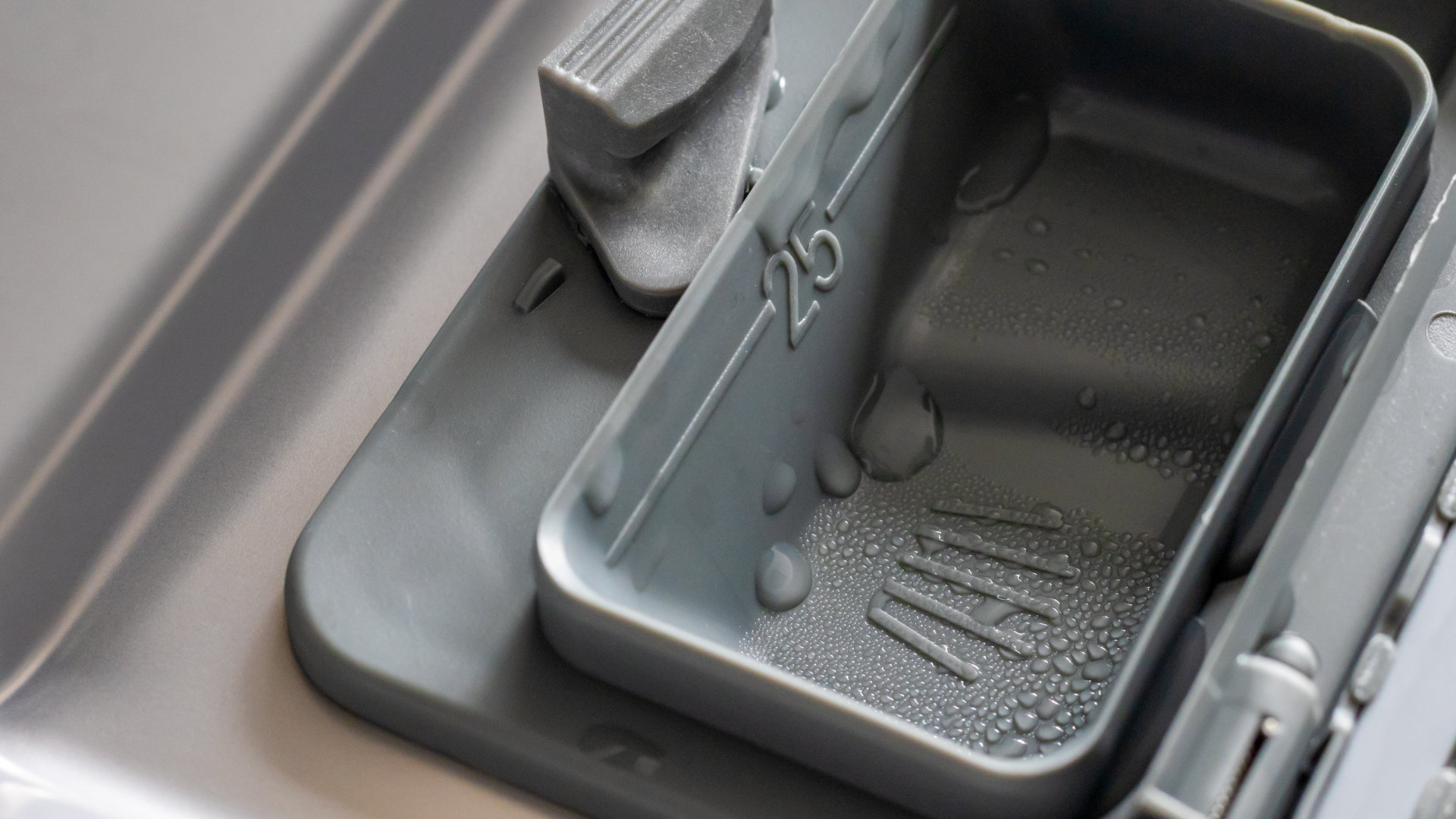
Freezing food is a great way to preserve it for future use, particularly if you have a surplus.
If you’re wondering whether or not you can freeze eggs, the answer is yes! Frozen eggs can be kept for several months, if the conditions are right. However, frozen eggs aren’t quite the same as fresh eggs because freezing them for a long time changes the texture. Therefore, they’re not ideal for all use, particularly in recipes that call for fresh, uncooked eggs, such as mayonnaise or dressings.
Frozen eggs are great for use in baking, though, where the recipe calls for a beaten egg. In fact, they’re perfect for many sweet or savory recipes, or even scrambled for breakfast. All you have to do is thaw them in the fridge overnight and they’re ready to be used.
How long can you freeze eggs for?
At the correct temperature, eggs can be kept frozen for up to six months. This is appealing to people who have a surplus of eggs as freezing extends an egg’s freshness well beyond its shelf life. It’s best to use frozen eggs within six months as extended freezing changes the texture and you run the risk of the eggs spoiling or getting freezer burn.
The best way to keep track of the time is by labeling the container the eggs are frozen in with the date they were frozen. This helps you know whether your eggs are safe for use. However, if your freezer temperature regularly fluctuates due to power outages or other causes, the eggs may not be suitable to be used even within six months. It’s important that the freezer be kept at −18°C or colder to preserve the freezer life of your eggs.
What can frozen eggs be used for?
In general, frozen eggs can be used in most recipes that call for eggs. This includes cakes, omelets and quiches. It’s important to note that some complicated recipes require fresh eggs. These include dressings such as caesar salad dressings, mayonnaise, eggnog, or many baking recipes. In these cases, it’s best to use fresh eggs as the texture of freeze–thawed eggs is slightly different from fresh eggs.
Because frozen eggs can also be used in scrambled eggs and omelets, they’re an ideal breakfast choice for busy families.
How do you freeze eggs?
Freezing eggs is a relatively straightforward process. You’ll need an airtight container or freezer bag along with a marker to label your container or bag.
- Crack the eggs into a large bowl.
- Gently whisk the eggs with a pinch of salt.
- Pour the whisked eggs into a freezer safe container. Make sure to leave some space in the top of the container to allow the eggs space to expand.
- Seal the container ensuring that there’s no leakage.
- Label the container with the contents as well as the date.
- Put the eggs in the freezer. Maintain the freezer’s temperature at or below −18°C.
How to thaw eggs
It’s important to thaw frozen eggs correctly. The key to thawing is to plan ahead as thawing should be done slowly to maintain the texture of the eggs and ensure that they’re safe to eat.
Ideally, you should thaw the eggs in the refrigerator overnight. Do this by placing the frozen container of eggs on a plate in the refrigerator.
If you are pressed for time and are unable to thaw the eggs overnight, you can thaw them in a bowl of cold water. Do this by placing the container of frozen eggs in a large bowl filled with cold water. Change the water every ten minutes to keep it chilled. Do this around 3–4 times or until the eggs are thawed.
However tempting, don’t thaw the eggs in warm water as this will promote bacterial growth and make the eggs unsafe to eat.
Benefits of eating eggs
Eggs are a popular choice for numerous diets due to their accessibility, versatility and high nutritional value. Some key benefits of eating eggs include:
1. Versatility
Eggs can be used in a number of sweet and savory recipes. Even alone, there are a number of ways to cook eggs, meaning you’ll never get bored of them. Whether you’re after scrambled eggs, homemade mayonnaise or a cake, eggs will do it all.
2. Convenience
Eggs are relatively cheap and accessible in most places. They can be quickly cooked, making them an ideal choice for people with busy lives. They can also be bought in bulk and frozen for later use.
3. Nutrition
Arguably the best benefit of eating eggs is the nutritional value. Eggs are protein dense, meaning they’re both filling and can be used by the body to repair muscle tissue and maintain healthy hair and skin. Eggs are also rich in vitamins and minerals that promote healthy healing and normal bodily functions. These include vitamin B12, choline, and vitamin D.
4. Supporting weight management
Eggs are high in protein and healthy fats, making them filling options to help with weight management. They’re also relatively low in calories compared to other high protein options such as meats.

How to test a gas range ignitor

Congrats to our graduating March 2024 class

How to test a 120 volt receptacle

Congrats to our graduating February 2024 class

Why Is Your Dishwasher Soap Not Dissolving? (5 Easy Fixes)

Refrigerator Dripping Water Inside? 5 Quick Fixes

Appliance Industry 2023 Q4 Results

Congrats to our graduating January 2024 class

Clever ways to use airbags to level your appliances



